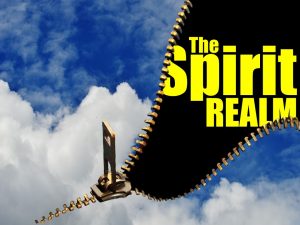 Part 1 | Part 2 | Part 3 | Part 4
Part 1 | Part 2 | Part 3 | Part 4
by William J. Stewart
Google “demon list” and you will discover site after site telling you about a myriad of demons. In these lists you’ll find everything from odd names (Bifrons, Jinn, Lamia) to human actions (gossip, lying, rape) or emotions (pride, grief, jealousy). The extensive and weird list of names given by some are not found in the Bible, but are from the writings of men. If you are familiar with the mythology of the Norse, Greek, Roman, etc., then you may recognize some of the names. Of all these, I would say along with Paul,
…we know that an idol is nothing in the world, and that there is no other God but one. For even if there are so-called gods, whether in heaven or on earth (as there are many gods and many lords), yet for us there is one God… (1 Corinthians 8:4-6)
The thought that human action or emotion should be attributed to demons is disturbing. It removes personal responsibility for sin. Have an ego problem? It’s not you—it’s a demon of pride. Do you have a hard time controlling your temper? You’ve been possessed by a spirit of rage! Cheating on your spouse? That’s a spirit of fornication. These folks have listed evil spirits for everything you could think of and more. Apparently there’s a baldness demon! Are you a vegetarian? There’s a demon for that! If it weren’t so serious, it’d be funny.
We listed every occurrence of demon possession from the New Testament last week. Something that stood out was the fact that no demon spoken of in the New Testament caused an individual to sin. We do not read about a demon of drunkenness, an evil spirit of idleness, an indifference demon, or a sodomite spirit. All these are manmade demons, if not to justify sin, at the very least to deflect culpability.
The Bible tells us of the distressing spirit which was upon king Saul (1 Samuel 16:14). Well, it must have been a demon of depression, right? No. The text says “…a distressing spirit from the LORD troubled him.” It was not a demon, nor was Saul possessed by a spirit. The word spirit is often used to describe an attitude or disposition. The Spirit of the LORD departed from Saul, and anxiety or dejection set in. To rid himself of the distressing spirit, Saul had David play his harp (1 Samuel 16:23). David wasn’t casting out an evil spirit with his harp; it served to distract Saul from his unfaithfulness to God. 1 Samuel 18:10-11 speaks of a time when even David’s music didn’t work to change Saul’s disposition.
Out of curiosity, I searched for the phrase “spirit of” in the Bible. These are not all the references, but a good selection of them:
- Spirit of wisdom (Exodus 28:3)
- Spirit of jealousy (Numbers 5:14)
- Spirit of ill will (Judges 9:23)
- Spirit of deep sleep (Isaiah 29:10)
- Spirit of harlotry (Hosea 4:12)
- Spirit of bondage (Romans 8:15)
- Spirit of stupor (Romans 11:8)
- Spirit of gentleness (Galatians 6:1)
- Spirit of fear (2 Timothy 1:7)
Just as Saul’s distressing spirit was a disposition, not a possession; so the spirits listed above do not indicate a possession, but a disposition, attitude or frame of mind.
Zechariah 12:10 is a reference to the Lord’s death at Calvary. Chapter 13 follows this up by referring to a time when the washing away of sin and uncleanness would happen. That is the very reason why Jesus suffered and died, so that the forgiveness of sins would be available (Luke 24:46-48; Acts 2:38; 3:19; etc.). Forgiveness of sins by the shed blood of Christ was made available with the coming of the gospel message. In Zechariah 13:2, we are told:
…I will cut off the name of the idols from the land, and they shall no longer be remembered. I will also cause the prophets and the unclean spirit to depart from the land.
Just in case someone wants to make a distinction between a demon and an unclean spirit, the Bible makes no such distinction (see Matthew 10:1, 8; Mark 1:23-27; Luke 4:33-36; Mark 5:12-13; etc.). An unclean spirit is a demon.
Zechariah said when the forgiveness of sins was made available because of the sacrifice of Jesus Christ, the unclean spirits would depart from the land. Which is it? Has demon possession ceased or was Zechariah a false prophet? The gospels show demon possession on a massive scale. Then, in the book of Acts there are but a few instances. The unclean spirits were to depart. If demon possession still happens today, Zechariah was wrong.
Might there be demon activity going on in some way or another? Sure. The apostle Paul warned about people “giving heed to deceiving spirits and the doctrines of demons” (1 Timothy 4:1). False teachings are linked to the demons. In like manner, false worship is linked to demons in 1 Corinthians 10:20-21. When people use Ouija boards, séances and such things, the aim is to contact evil spirits. I’ve read of cases where people using drugs have had out of this world experiences, perhaps contact with demons. Demons did not vacate the spirit realm—they were to depart from the land. Do demons still exist? Absolutely. Can people be in contact with or influenced by demons? Perhaps. Does demon possession happen today? Not according to the Holy Spirit, the source of Zechariah’s prophecy.

